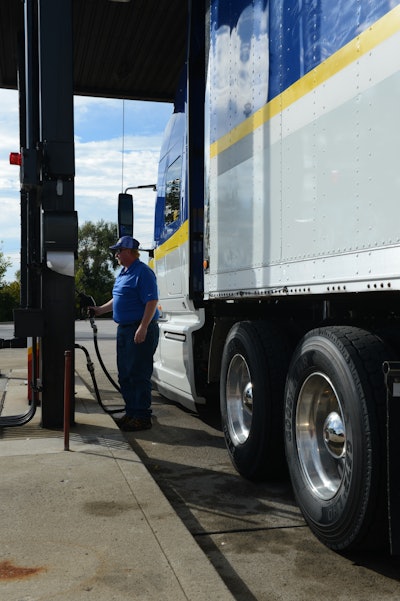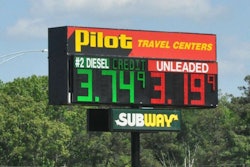
The recent spat between the United States and Iran is not expected to impact retail diesel fuel prices in the U.S., according to fuel pricing experts.
The Department of Energy’s Energy Information Administration (EIA) said in its most recent weekly update that the U.S. drone strike that killed Iranian General Qasem Soleimani and the Iranian retaliation strikes on bases in Iraq “increased uncertainty about potential disruptions to oil production and shipping in the Middle East.” However, following the events, the price of crude oil jumped to $70 per barrel but settled back to near the December average of $67 per barrel.
Tensions have subsided in recent weeks after the Jan. 3 strike by the U.S. that killed Soleimani.
EIA notes that it does not forecast supply disruptions, such as those that could be caused by further unrest in the Middle East, and that any physical supply disruptions would put upward pressure on oil prices.
Chris Lee, vice president of marketing for ProMiles, said growing energy independence in the U.S. has helped stave off price increases stemming from Middle East geopolitical issues.
“The U.S. is nowhere near as dependent on foreign oil as we were 15 to 20 years ago,” he said. “There was [no price change] worth noting as a result of the attacks. We’ve ramped up production over here to a point where we don’t need their oil.”
EIA and ProMiles’ weekly diesel price updates reflect the lack of impact in the weeks following the Iranian events. Diesel prices across the U.S. have actually fallen in the weeks following the attacks. According to EIA, diesel prices have fallen from a national average of $3.079 during the week ending Jan. 6 to $3.064 during the week ending Jan. 13 and to $3.037 during the week ending Jan. 20.
ProMiles’ numbers show a similar trend, falling from a national average of $2.986 on Jan. 6 to an average of $2.951 on Jan. 20.










